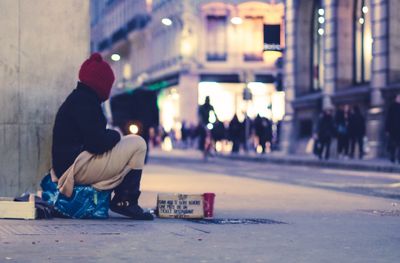Fighting Human Trafficking and Raising Awareness during a Global Pandemic
Fighting Human Trafficking and Raising Awareness during a Global Pandemic
- Subscribe to RSS Feed
- Mark as New
- Mark as Read
- Bookmark
- Subscribe
- Printer Friendly Page
- Report Inappropriate Content
Human Trafficking and the Pandemic
I serve as the Associate Director of Corporate Partnerships for Polaris. Polaris is a nonprofit organization leading a data-driven social justice movement to fight sex and labor trafficking at the massive scale of the problem—25 million people worldwide deprived of the freedom to choose how they live and work. Most of us would agree that 2020 was a year unlike any other. The COVID-19 pandemic brought many challenges that most people could not have ever imagined, let alone planned for many people lost jobs, homes, family members, and even hope.
Recent Increases in Human Trafficking Reporting
At Polaris, we’ve seen how the difficult circumstances of the past year have disproportionately impacted trafficking victims and survivors. For more than a decade, Polaris has assisted thousands of victims and survivors through the U.S. National Human Trafficking Hotline, helped ensure countless traffickers were held accountable, and built the largest known data set on actual trafficking experiences within the United States. With the guidance of survivors, we use that curated data to improve the way trafficking is identified, how victims and survivors are assisted, and how communities, businesses, and governments can prevent human trafficking by transforming the underlying inequities and oppressions that make it possible.
Data from service providers and the Trafficking Hotline has consistently shown that the majority of trafficking victims identified in the U.S. are people who have historically faced discrimination and its political, social, and economic consequences: People of color, indigenous communities, immigrants, and people who identify as LGBTQ+ are disproportionately victimized. People living in poverty, or foster care, or are struggling with addiction, trauma, abuse, or unstable housing, are all at comparatively higher risk for trafficking.
All available evidence suggests that these same people will become even more vulnerable in the wake of this crisis. Some of these impacts were felt immediately—we compared data from April 2020 to a period of time before most of the country went into lockdown, and saw a 40 percent increase in crisis cases coming into the Trafficking Hotline. That equates to a 40 percent increase in situations requiring assistance such as shelter, transportation, or law enforcement involvement within 24 hours of calling the Trafficking Hotline. While we can’t be sure if more trafficking was taking place during this time, this statistic does tell us that victims and survivors found themselves in increasingly dire or unsafe situations as communities and businesses around the country shut down to curtail the spread of the virus. The longer-term impacts of the pandemic on trafficking remain to be seen.
National Human Trafficking Prevention Month

Human trafficking is a massive problem. It’s a $150 billion industry that robs nearly 25 million people around the world of their freedom. It will take all of us—businesses, law enforcement agencies, governments, and communities—to change the systems, the laws, the biases, and the underlying social structures that together make human trafficking possible and profitable.
Together with partners, including Southwest Airlines, we are reimagining a comprehensive and targeted response to human trafficking based on our shared commitment to ensuring every human being has a chance to live in freedom and with dignity. Since 2013, Southwest has generously donated flights to the Trafficking Hotline, which we use to help survivors who need to travel in order to leave their traffickers, receive supportive services, reunite with their families, or even testify against their trafficker in court. In 2019, Polaris and Southwest teamed up to provide human trafficking awareness curriculum to all of Southwest’s Employees.
As we embark on 2021, we know that we will face challenges and uncertainty. But we also know that we are not in this fight alone. Together with our partners and fellow community members, we will continue to advocate for a world where Human Trafficking cannot thrive.
How can you help?
You can join in the effort to help end Human Trafficking by visiting our website. Polaris is also a part of Southwest’s Points for a Purpose program. Points for a Purpose gives Rapid Rewards® Members the opportunity to donate their Points to select organizations, including ours. Your donated points to Polaris will be used to transport victims to safety so they can regain their freedom.
You must be a registered user to add a comment. If you've already registered, sign in. Otherwise, register and sign in.
